Filter by
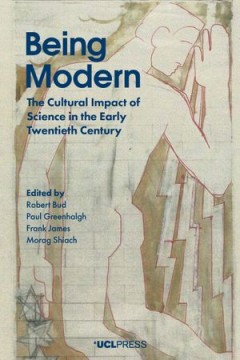
Being Modern
In the early decades of the twentieth century, engagement with science was commonly used as an emblem of modernity. This phenomenon is now attracting increasing attention in different historical specialties. Being Modern builds on this recent scholarly interest to explore engagement with science across culture from the end of the nineteenth century to approximately 1940. Addressing the breadth …
- Edition
- -
- ISBN/ISSN
- 9781787353930
- Collation
- -
- Series Title
- -
- Call Number
- 900 BEI b
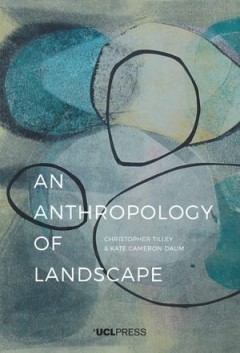
An Anthropology of Landscape
An Anthropology of Landscape tells the fascinating story of a heathland landscape in south-west England and the way different individuals and groups engage with it. Based on a long-term anthropological study, the book emphasises four individual themes: embodied identities, the landscape as a sensuous material form that is acted upon and in turn acts on people, the landscape as contested, and it…
- Edition
- -
- ISBN/ISSN
- 9781911307433
- Collation
- -
- Series Title
- -
- Call Number
- 930.1 TIL a
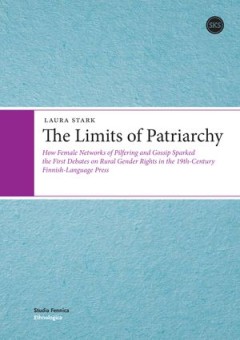
The Limits of Patriarchy: How Female Networks of Pilfering and Gossip Sparked…
In the mid-19th century, letters to newspapers in Finland began to condemn a practice known as home thievery, in which farm mistresses pilfered goods from their farms to sell behind the farm master’s back. Why did farm mistresses engage home thievery and why were writers so harsh in their disapproval of it? Why did many men in their letters nonetheless sympathize with women’s pilfering? Wha…
- Edition
- -
- ISBN/ISSN
- 9789522223272
- Collation
- -
- Series Title
- -
- Call Number
- 909.81 STA l
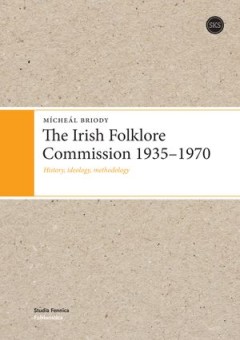
The Irish Folklore Commission 1935-1970: History, Ideology, Methodology
Between 1935 and 1970 the Irish Folklore Commission (Coimisiún Béaloideasa Éireann), under-funded and at great personal cost to its staff, assembled one of the world’s largest folklore collections. This study draws on the extensive government files on the Commission in the National Archives of Ireland and on a wide variety of other primary and secondary sources, in order to recount and ass…
- Edition
- -
- ISBN/ISSN
- 9789517469470
- Collation
- -
- Series Title
- -
- Call Number
- 909.82 BRI i

The Enemy Within: Homicide and Control in Eastern Finland in The Final Years …
This work explores the quantitative and qualitative development of homicide in eastern Finland in the second half of the eighteenth century and the early years of the nineteenth. The area studied comprised northern Savo and northern Karelia in eastern Finland. At that time, these were completely agricultural regions on the periphery of the kingdom of Sweden. Indeed the majority of the populatio…
- Edition
- -
- ISBN/ISSN
- 9789517464741
- Collation
- -
- Series Title
- -
- Call Number
- 909 KOS e
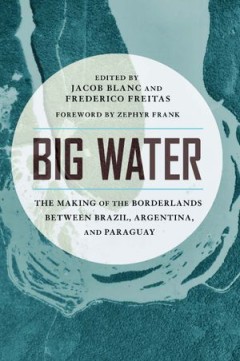
Big Water : The Making of the Borderlands Between Brazil, Argentina, and Para…
Big Water explores four centuries of the overlapping histories of Brazil, Argentina, and Paraguay (the Triple Frontier), and the colonies that preceded them. Examining an important area that includes some of the first national parks established in Latin America and one of the world’s largest hydroelectric dams, this transnational approach illustrates how these three nation-states have interac…
- Edition
- -
- ISBN/ISSN
- 978-0-8165-4173-7
- Collation
- -
- Series Title
- -
- Call Number
- 981.62 BIG
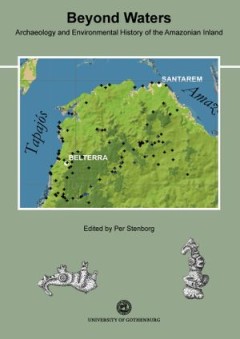
Beyond Waters : Archaeology and Environmental History of the Amazonian Inland
This book is one of the outcomes of the project Cultivated Wilderness: Socio-economic development and environmental change in pre-Columbian Amazonia (http://www.cultivated-wilderness.org/). The project has particularly focused on the previously relatively unknown prehistory of the Amazonian hinterland. Our work has revealed that pre-Columbian settlements in the Santarém region in the State of …
- Edition
- -
- ISBN/ISSN
- 978-91-85245-66-6
- Collation
- -
- Series Title
- Gothenburg Archaeological Studies 6
- Call Number
- 980 BEY

Beyond Provenance : New Approaches to Interpreting the Chemistry of Archaeol…
Human intentionality in chemical patterns in Bronze Age metals For the last 180 years, scientists have been attempting to determine the ‘provenance’ (geological source) of the copper used in Bronze Age artefacts. However, despite advances in analytical technologies, the theoretical approach has remained virtually unchanged over this period, with the interpretative methodology only changing …
- Edition
- -
- ISBN/ISSN
- 978 94 6166 266 8
- Collation
- -
- Series Title
- Studies in Archaeological Sciences 6
- Call Number
- 930.156 POL b
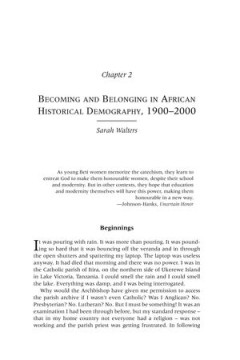
Chapter 2 Becoming and Belonging in African Historical Demography, 1900–2000
In the last forty years anthropologists have made major contributions to understanding the heterogeneity of reproductive trends and processes underlying them. Fertility transition, rather than the story of the triumphant spread of Western birth control rationality, reveals a diversity of reproductive means and ends continuing before, during, and after transition. This collection brings together…
- Edition
- -
- ISBN/ISSN
- 9781785336058
- Collation
- -
- Series Title
- -
- Call Number
- 900 WAL C
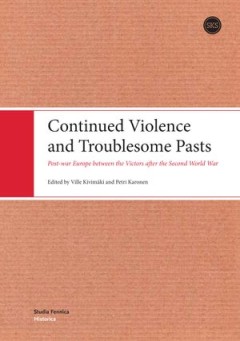
Continued Violence and Troublesome Pasts: Post-War Europe Between The Victors…
In most European countries, the horrific legacy of 1939–45 has made it quite difficult to remember the war with much glory. Despite the Anglo-American memory narrative of saving democracy from totalitarianism and the Soviet epic of the Great Patriotic War, the fundamental experience of war for so many Europeans was that of immense personal losses and often meaningless hardships. The anthology…
- Edition
- -
- ISBN/ISSN
- 9789522228574
- Collation
- -
- Series Title
- -
- Call Number
- 909.81
 Computer Science, Information & General Works
Computer Science, Information & General Works  Philosophy & Psychology
Philosophy & Psychology  Religion
Religion  Social Sciences
Social Sciences  Language
Language  Pure Science
Pure Science  Applied Sciences
Applied Sciences  Art & Recreation
Art & Recreation  Literature
Literature  History & Geography
History & Geography